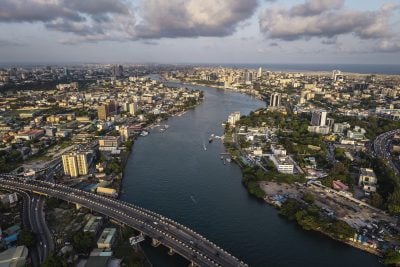Ahead of this year’s crucial presidential elections, Zimbabwean President Emmerson Mnangagwa is scrambling to stabilise an ailing economy and a volatile currency. As of May, inflation was at 483% per year, according to Professor Steve Hanke of Johns Hopkins University – far above the Zimbabwe Statistics Agency’s reported inflation rate of 75.2% for the year to April. Growth this year is projected at just 2.5% by the IMF.
In its latest bid to stabilise the long-volatile Zimbabwean dollar, the government opted to roll out a gold-backed electronic digital currency. Reserve Bank of Zimbabwe governor John Mangudya said in April that this will be fully backed by physical gold held by the Bank. The digital tokens were made available for a minimum price of $10 for individuals and $5,000 for corporates and other entities.
In an April statement Mangudya explained the bank’s thinking: “The issuance of the gold-backed digital tokens is meant to expand the value-preserving instruments available in the economy and enhance divisibility of the investment instruments and widen their access and usage by the public.
The gold-backed digital tokens held in either e-gold wallets or e-gold cards will be tradable and capable of facilitating Person-to-Person (P2P) and Person-to-Business (P2B) transactions and settlements.
“It, therefore, means that the gold-backed digital tokens would be used both as a means of payment and a store of value,” he said.
On Friday 12 May the Bank said that it had received 135 applications, including 132 valued at ZW$14,077,337,421 ($39m) and three valued at US$810, to purchase gold-backed digital tokens. The full amount was allotted. In a second tranche, allocated on 18 May, the Bank received 106 applications, with 104 at valued ZW$8,063,137,030.20 ($22.3m) and two at US$2,100. In both tranches the full amount was allotted.
Economists were, however, sceptical that the tokens will bring lasting stability to the beleaguered currency, which has depreciated 40% against the US dollar this year. It trades at 1,070 to the dollar on the official market and between 1,500 to 2,300 on the parallel market.
“With the local dollar in free fall and inflation running hot, there is clearly a need for an alternative store of value for Zimbabweans,” Jee-A Van Der Linde, an economist at NKC African, told African Business.
“The fundamental issue in Zimbabwe comes down to a lack of monetary credibility, as a result of the authorities’ inability to implement stable and coherent policies, which has led to low confidence in the financial system,” he says.
Related articles
- Gold coins to the rescue in Zimbabwe
- The stakes will be high in Zimbabwe’s elections
- All systems are go for Zimbabwe, says Mthuli Ncube
- Reform scepticism proves block to Zimbabwe debt settlement
Economist Esther Mapungwana agrees that the tokens will not address the fundamental economic weaknesses that are underpinning the performance of the currency. “Gold was the first legal tender after the barter trade – so Zimbabwe is trying to go back to how trade was. However, the problem with this modality is that fundamental principles of production-based currency and exchange rate systems that now exist in the global financial system may not work well with gold-backed digital coins.
“What is needed is to address the fundamentals first – which are trade and production. This will attract investment and demand for a currency and trade based on demand.”
Mapungwana says gold-backed digital coins are unlikely to solve the shortage of hard currency among Zimbabwe’s enormous community of informal traders. “How about informal traders who need hard currency to trade daily? They constitute more than 60% of traders in the country. This may not be feasible with the current economic situation,” Mapungwana says.
Instead, Mapungwana says that Zimbabwe needs currency reform with new enforceable legal frameworks to tackle black market currency trading. “Anything else is a sort of stopgap measure. Let us address the root cause, not the symptoms and worsen the situation. The black market needs to be cleaned up first,” she says.
The International Monetary Fund greeted the scheme with caution. “A careful assessment should be conducted to ensure the benefits from this measure outweigh the costs and potential risks including, for instance, macroeconomic and financial stability risks, legal and operational risks, governance risks, [and the] cost of forgone FX reserves,” an IMF spokesperson told Bloomberg.
Reserve Bank’s latest gambit
The digital token scheme is not the first time the Reserve Bank has alighted on a novel solution to Zimbabwe’s currency woes. Zimbabwe tentatively re-introduced the local currency in May 2016 in the form of bond notes meant to ease shortages of smaller notes and coins.
In 2019 the southern African nation officially re-introduced the Zimbabwean dollar, ending the use of a multi-currency regime including the US dollar and South African rand that had been adopted in 2009 to deal with a period of hyperinflation. Last year, as the international economic environment worsened, gold coins were introduced to tame runaway inflation. But prices of basic commodities remain beyond the reach of many, as businesses chase the runaway exchange rate.
Stevenson Dhlamini, an economist and a senior lecturer at the National University of Science and Technology of Zimbabwe in Bulawayo, says that the concept of gold-backed tokens is not a new phenomenon in the era of fiat currencies and emerging digital currencies: and its success will depend on the government’s credibility.
“If administered in good faith, they offer product diversification for investors,” he says. “Their success hinges on the level of confidence that the market has regarding the integrity of the issuing institution.”
Credibility deficit
Indeed, rebuilding trust and economic credibility would have impacts far beyond the digital currency rollout. While the government launched the tokens, President Emmerson Mnangagwa sought to reassure investors that his once-promised reform agenda is still on track.
Speaking during a high-level debt resolution forum on 15 May in Harare, Mnangagwa said that he is committed to reforms to resolve the country’s nearly $8.3bn of debts and arrears. These would include changes to governance and land tenure, compensation of former farm owners and the resolution of bilateral investment protection agreements.
But comments by African Development Bank President Akinwumi Adesina reveal the immensity of the challenges facing the country. “Zimbabwe cannot run up the hill of economic recovery carrying a backpack of debt on its back. It is time for a comprehensive debt arrears clearance and debt resolution for Zimbabwe.
“But getting there is not a walk in the park… economic sanctions are driving Zimbabwe further into unsustainable debt. The debt itself is not as debilitating as the arrears on the debt, since the country cannot access international concessional financing or other revenue or less expensive financing to pay down its debt obligations.”
He said that peaceful elections this year will be absolutely critical to proving to the international community that Zimbabwe can be a credible partner. “The people of Zimbabwe and the international community will be watching very closely. The full weight of re-engagement with the international community will depend on this. It will also depend not just on the election, but the entire electoral process that guarantees a credible election,” Adesina urged.
Former Mozambique President Joaquim Chissano, the facilitator of the dialogue, said Zimbabwe’s situation is being felt far beyond the country. “The crisis in the country is having terrible consequences for the region, as Zimbabwe lies at the heart of Southern Africa. Many regional infrastructure development plans, including roads, railways and power transmission lines, have been brought to a standstill, as they have to run through the country. Continental free trade is also undermined by the situation prevailing in Zimbabwe.”
Want to continue reading? Subscribe today.
You've read all your free articles for this month! Subscribe now to enjoy full access to our content.
Digital Monthly
£8.00 / month
Receive full unlimited access to our articles, opinions, podcasts and more.
Digital Yearly
£70.00 / year
Our best value offer - save £26 and gain access to all of our digital content for an entire year!

 Sign in with Google
Sign in with Google 



